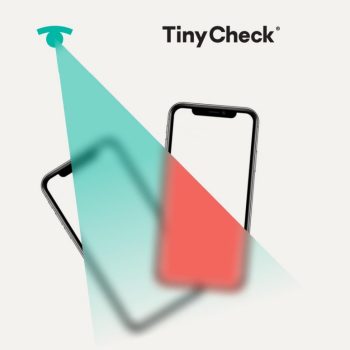
Stalkerware is not only used for private tracking of people. This can also be used to spy on employees’ smartphones. The open source tool TinyCheck helps to check mobile devices.
Kaspersky's open-source tool for detecting stalkerware, 'TinyCheck', will have a hub where the latest developments and changes in use will be presented. The website also helps to further strengthen the community of everyone involved in the development of the tool and the fight against stalkerware and spyware.
Stalkerware for espionage
TinyCheck was developed in 2019 after an exchange between Kaspersky and a French women's shelter. The women's shelter supported a growing number of stalkerware victims, but wasn't sure how to approach this issue from a technical perspective. A solution was needed that was untraceable, easy to use, and aided in evidence collection.
Kaspersky then developed TinyCheck as a free, open-source tool [2] that anyone can download and help optimize. TinyCheck doesn't install on a smartphone, but instead uses a separate external device - a Raspberry Pi microcomputer. TinyCheck aims to simplify the detection of stalkerware on a victim's device in a simple, fast and non-invasive way.
Simple, non-invasive detection of stalkerware
It works on any operating system without alerting the culprit. TinyCheck is safe to use, does not read the content of a person's communication (e.g. SMS or emails), but only interacts with the online servers/IPs with which the smartphone communicates. TinyCheck doesn't know who or what a person is talking to. The network recording of the analyzed device is not shared; neither Kaspersky nor third parties receive this data. All analysis is performed locally.
Over the past few years, more and more non-governmental organizations have tested and implemented TinyCheck. Bruno Pérez Juncá, honorary member of the Stop Gender Violence Association, reports on his experiences with TinyCheck: “I have been working with agencies against gender-based violence for many years. TinyCheck is exactly what sufferers and the general population need. TinyCheck is comparable to an antigen test; a fast, inexpensive and reliable first step test that can detect an infection on a smartphone.”
TinyCheck – also for journalists and companies
Recently, TinyCheck has also attracted the attention of European institutions, journalists and companies. Law enforcement authorities and judicial bodies in Europe are currently testing the solution to assist those affected in making a statement or in an investigation.
The new TinyCheck Hub is a comprehensive information resource to learn more about its functionalities and applications and provides a way to contact the development team to contribute to its further development. Kaspersky looks forward to additional partners to raise awareness of stalkerware and spyware and find new ways to help victims.
More at Tiny-Check.com
About Kaspersky Kaspersky is an international cybersecurity company founded in 1997. Kaspersky's in-depth threat intelligence and security expertise serve as the basis for innovative security solutions and services to protect companies, critical infrastructures, governments and private users worldwide. The company's comprehensive security portfolio includes leading endpoint protection as well as a range of specialized security solutions and services to defend against complex and evolving cyber threats. Kaspersky technologies protect over 400 million users and 250.000 corporate customers. More information about Kaspersky can be found at www.kaspersky.com/
